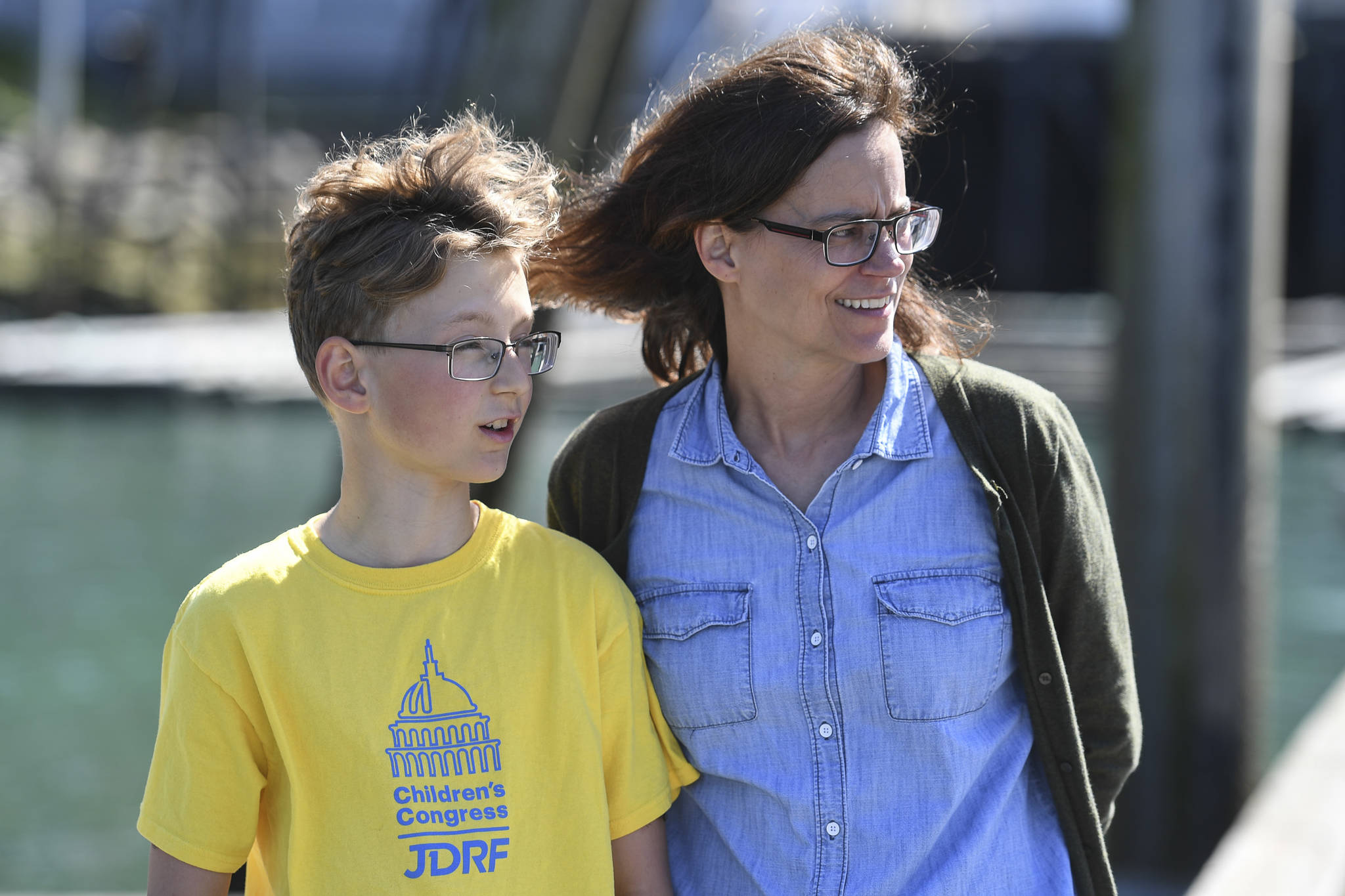Bruno Malecha is going to Washington, D.C. because he wants other youths with Type 1 diabetes to live the same way he does.
Malecha, 12, was diagnosed with Type 1 diabetes — a disease that means the body does not produce insulin — when he was 1 year old. While diabetes means Malecha needs to be aware of what he eats and his activity level, he told the Empire he is fortunate to be covered by health insurance and have access to medical equipment that allow the Scout to do things like go on overnight camping trips or join his mother, Jen, on lengthy hikes.
“I’m pretty lucky with my diabetes,” Malecha said. “I’ve got good management.”
But he knows not everyone has access to the care and equipment he does, so he applied to be part of the JDRF 2019 Children’s Congress. Every two years about 160 children with Type 1 diabetes lobby the adult Congress to renew the Special Diabetes Program.
[Robbery suspect kicks cane away from teen, steals purse]
“They give money to companies to develop existing technologies and create new ones,” Malecha said.
The Special Diabetes program was created 1997, according to the organization formerly known as Juvenile Diabetes Research Foundation and now simply known by its initials. The program typically receives bipartisan support. It was last renewed for two years in 2018 at $150 million per year.
The Children’s Congress allows youths with Type 1 Diabetes to tell lawmakers about how the autoimmune disease affects their lives.
Jen Malecha, who is also an impassioned advocate for diabetes research, said technological advancement spurred by the program is part of the reason her son can live and enjoy the life he has.
For the past year, Bruno Malecha has used a continuous glucose monitoring system that works with an insulin pump, and the relatively new device has increased the quality of life for everyone in the Malecha family.
“It adjusts Bruno’s insulin based on his real-time glucose numbers instead of us constantly checking his blood sugar and deciding if we should give him more insulin,” Jen Malecha said.
She said it’s the closest thing to an artificial pancreas that is available to people with diabetes.
“It’s a huge step, and it’s made a huge difference in his life,” Jen Malecha said. “All three of us sleep so much better at night. We used to check him several times throughout the night and now we rarely have to check him at night.”
Bruno said he appreciates having a device that eases the burden of having to make hundreds of daily decisions about what he eats or does.
[Something déjà vu, there’s a lot new at Rendevous]
The Malechas feel strongly that similar peace of mind, or at least life-saving medicine, should be available to everyone with diabetes.
Jen Malecha said she has been advocating for the Special Diabetes Program since shortly after her son’s diagnosis, but this is the first time Bruno will be part of the JDRF Children’s Congress.
Bruno Malecha said knowing that people have died because they were rationing their insulin because of its cost was a main motivating factor in his decision to participate in the Children’s Congress.
“We just feel like insulin should not be that expensive,” Jen Malecha said. “It’s a really, really old drug. People are dying and suffering because of it.”
• Contact reporter Ben Hohenstatt at (907)523-2243 or bhohenstatt@juneauempire.com. Follow him on Twitter at @BenHohenstatt.

